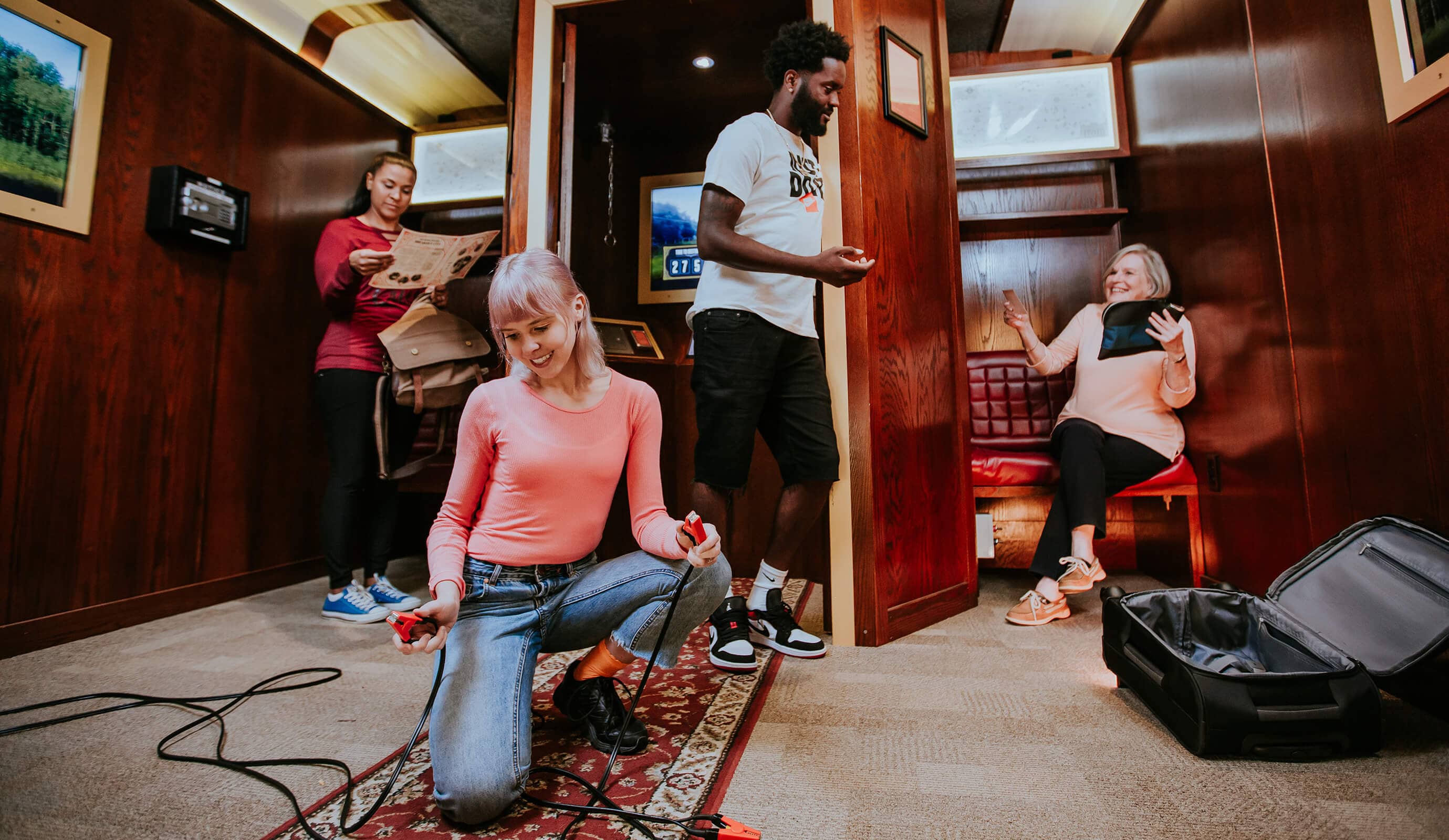Best Escape Room Experience-- Exciting Gamings and Puzzles for Teams
Best Escape Room Experience-- Exciting Gamings and Puzzles for Teams
Blog Article
Group Methods: Just How to Work together Effectively in an Escape Area
Navigating the intricacies of a retreat area demands even more than mere excitement; it requires a well-coordinated strategy based in clear communication, strategic duty assignments, and proficient time administration. Groups must actively listen to each member's understandings, assign duties that straighten with individual toughness, and maintain normal check-ins to guarantee emphasis and prevent redundancy. By cultivating an atmosphere that values communication and versatility, teams can dramatically increase their efficiency and success rates. The nuances of these methods can change the experience, however exactly how exactly can they be applied to take full advantage of the possibility for success?
Establish Clear Interaction

To promote clear interaction, it is important to assign a central point of call for info dissemination. This role entails summarizing searchings for and proposed strategies to make sure everyone remains on the same page. Additionally, embracing a systematic strategy to discussions can protect against disorderly exchanges. For example, short, focused updates from each staff member can maintain the team notified without frustrating them with details.

Appoint Duties Tactically
While clear communication sets the foundation for reliable synergy, appointing roles tactically ensures that each staff member's toughness are used efficiently. In a retreat room scenario, the time-sensitive and intricate nature of challenges requires a well-organized technique to job delegation. By identifying and leveraging individual competencies, teams can enhance their analytic capabilities and improve overall efficiency.
First, analyze the distinct abilities and attributes of each participant. Someone with a keen eye for detail may excel in locating covert objects, while a sensible thinker can be better fit to fixing puzzles. It's just as important to have a leader that can look after development, manage the timeline, and make definitive phone calls when required. This duty usually needs solid business and social skills.
2nd, guarantee that duties are flexible and versatile. As new obstacles arise, the group has to be able to pivot, reapportioning jobs as required. This adaptability aids preserve momentum and prevents bottlenecks that might happen due to inflexible role tasks.
Ultimately, a calculated technique to duty job not just takes full advantage of the strengths of each employee but likewise promotes a cohesive environment, driving the team towards an effective getaway.
Make Use Of Diverse Skills
Acknowledging and taking advantage of the diverse abilities within your group can significantly boost your efficiency in a getaway area. Each group member brings special strengths to the table, and properly leveraging these abilities can speed up analytic and enhance general efficiency. As an example, a group participant with strong analytical skills might stand out at deciphering intricate codes or patterns, while one more with keen empirical abilities might swiftly detect concealed hints that others could forget.
Urge team participants to articulate their insights and concepts without delay, making certain that all possible services are thought about. Additionally, designating jobs that line up with each member's toughness can avoid traffic jams and ensure that progress is continuous.
Furthermore, diversity in skills typically converts to diversity in assuming designs, which is very useful Read More Here in a retreat room setup. While some challenges may need logical reasoning and precision, others may take advantage of creative and association of ideas. By acknowledging and leveraging this variety, groups can attend to a broader variety of challenges much more efficiently, consequently increasing their chances of a successful getaway.
Manage Time Effectively

First, designate first mins for a fast study of the room. Identify noticeable problems and divide jobs based upon group members' staminas, making certain that no one is still. Set internal time checkpoints to examine development regularly; for circumstances, aim to have half the puzzles resolved by the mid-point of the video game. This method can assist maintain the group concentrated and stop time from slipping away undetected.
In addition, avoid tunnel vision. If a puzzle is taking as well long, revolve staff member or carry on to an additional difficulty, returning later on with fresh viewpoints. Communication is vital-- keep every person upgraded on fixed puzzles and continuing to be tasks to avoid redundant initiatives.
Last but not least, use any type of tips or clues moderately however purposefully - best escape room. Understanding when to ask for assistance can save useful time. By sticking to these time administration principles, groups can significantly boost their possibilities of an effective and enjoyable getaway space experience
Debrief and Show
Representation is an essential aspect of team advancement and improvement in the context of getaway spaces. Once the difficulty is completed, whether efficiently or not, it is essential for the group to participate in an read this organized debriefing session. This process allows group members to evaluate their performance, recognize strengths, and determine areas for improvement.
Begin the debrief by reviewing what more info here went well. Highlight particular instances of effective communication, problem-solving, and partnership. Recognizing these favorable habits strengthens them and motivates their rep in future obstacles.
Review moments of confusion, miscommunication, or ineffective strategies. Urge an open and positive dialogue where team members can share their perspectives without fear of objection.
Conclusion
To conclude, effective collaboration in a getaway area is predicated upon clear communication, tactical role tasks, the effective use of varied skills, and efficient time management. Routine check-ins and organized debriefings are necessary for maintaining focus and cultivating continuous renovation. By creating a cohesive and adaptive team setting, the possibility of effectively resolving puzzles and accomplishing the purpose of getting away the space is dramatically enhanced. This strategy not just guarantees success but additionally advertises collective growth and understanding.
Report this page